Department News
“Education is not the filling of a pail, but the lighting of a fire.”
W.B. Yeats

Department News
“Education is not the filling of a pail, but the lighting of a fire.”
W.B. Yeats
Focus on Chinese
Our Year 8 students are currently learning Chinese. Let’s take this opportunity to consider why the study of Chinese is so important for Australian students.
Here are two of our Year 8 Chinese students who are going to give us an
insight into their language learning experience.
1. What is your name?
Emily Zhao
2. When did you start learning Chinese?
I started learning Chinese when I was 1 year old.
3. What aspects of learning Chinese do you enjoy?
I particularly enjoyed learning and memorising the complex characters. I
thought they looked very different compared to english.
4. What aspects of learning Chinese do you find challenging?
To my surprise, remembering the pronunciation was quite difficult for me,
as I was a slow learner. You need to say specific letters uniquely and I just
found it a bit hard to grasp.
5. How would you explain the Chinese language to someone who
has never studied it?
I’d call it a language of memorisation.
6. What have you learned about Chinese culture during your study
of Chinese?
I’ve learned a lot about the traditions and events they celebrate that I have
never even heard about before.
7. What would you say to a student who was thinking about
learning Chinese?
I would tell them that Chinese doesn’t have an alphabet.
8. Why do you think it is important to learn a second language?
Motivation and dedication.
1. What is your name?
Elizabeth Fleming
2. When did you start learning Chinese?
I started learning Chinese when I was around 4.
3. What aspects of learning Chinese do you enjoy?
The aspects I enjoy learning are learning the tones and discovering what
each word means because of how difficult Chinese words are.
4. What aspects of learning Chinese do you find challenging?
Personally, memorising the tones and stroke order. There is a rule when
writing Chinese characters and you must follow it.
5. How would you explain the Chinese language to someone who
has never studied it?
It’s quite hard to learn and memorise, but eventually you’ll get it.
6. What have you learned about Chinese culture during your study
of Chinese?
I learned more about Chinese culture and myths.
7. What would you say to a student who was thinking about
learning Chinese?
Do it, since it would be beneficial in the future. Besides, it would help
to be bilingual when visiting other countries.
8. Why do you think it is important to learn a second language?
It’s important to learn two or more languages because then you can
communicate with other people with a different ethnicity.
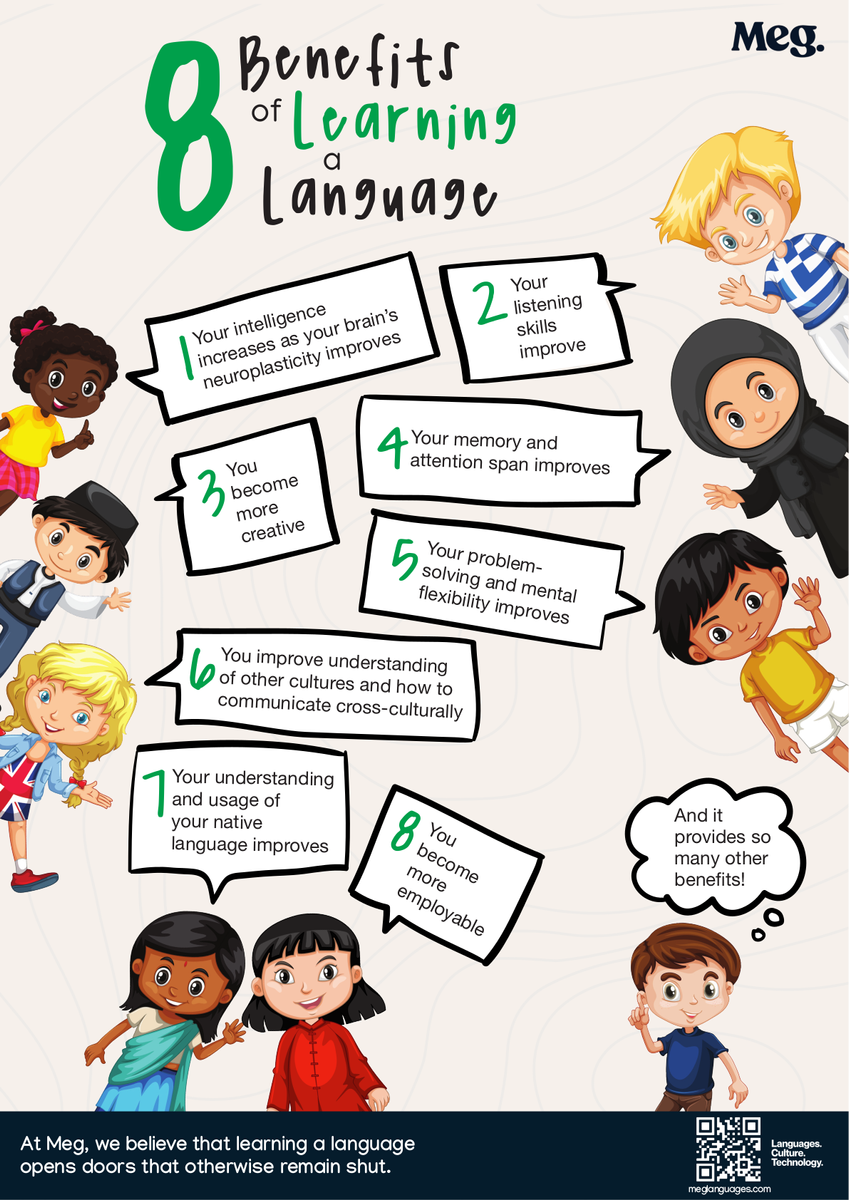

Janine Christofides
Head of Language
While our College Orchestra and Choir have been busily preparing for Matilda The Musical many of our small ensembles from last year are up and running again, rehearsing for upcoming concerts and the Sydney Catholic Schools Eisteddfod.
This year the music department has a Flute Ensemble run by Gabriella Wahib and Angelica Pardinas (Year 12), a Clarinet Ensemble run by Maya James (Year 12), an Acapella group run by Abigail Connolly (Year 12), a String Ensemble run by Ms Jennifer Lau, a Guitar Ensemble run by Bella Siawidjaja (Year 12) and our Junior Orchestra run by Ms Lau.
Later in the term 2 the String Ensemble, Acapella group, Junior Orchestra and soloists from the Year 12 music class, will be competing in the Eisteddfod. Last year the Junior Orchestra won the Senior Instrumental Ensemble category and are returning to defend their title!
The Junior Orchestra has been preparing a few pieces over the last year but with no concert to perform due to Covid-19 they have instead recorded a video of their performance of Firework by Katy Perry to show the school community. Thank you to Ms Lau for putting the video together. We hope you enjoy watching it!
Jacqui Hanniffy
Head of Music
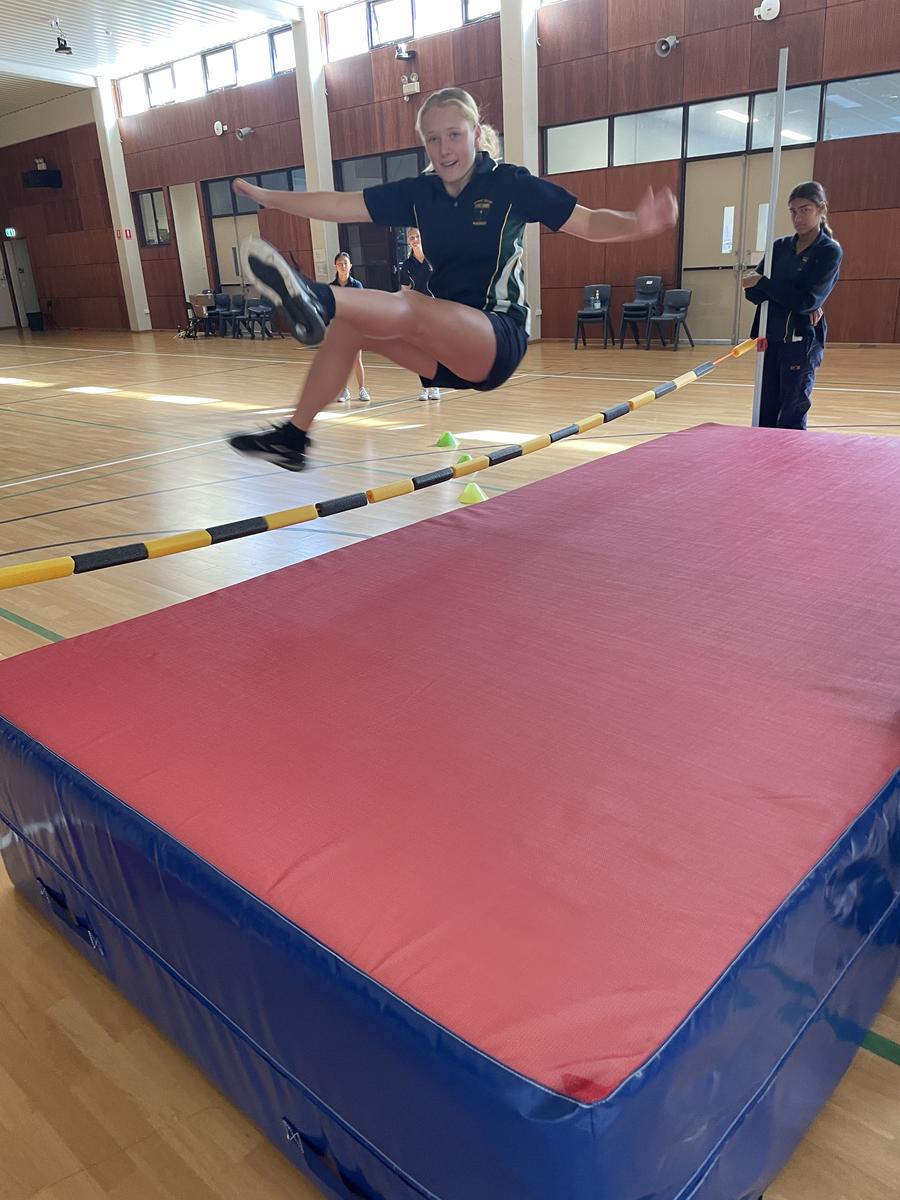
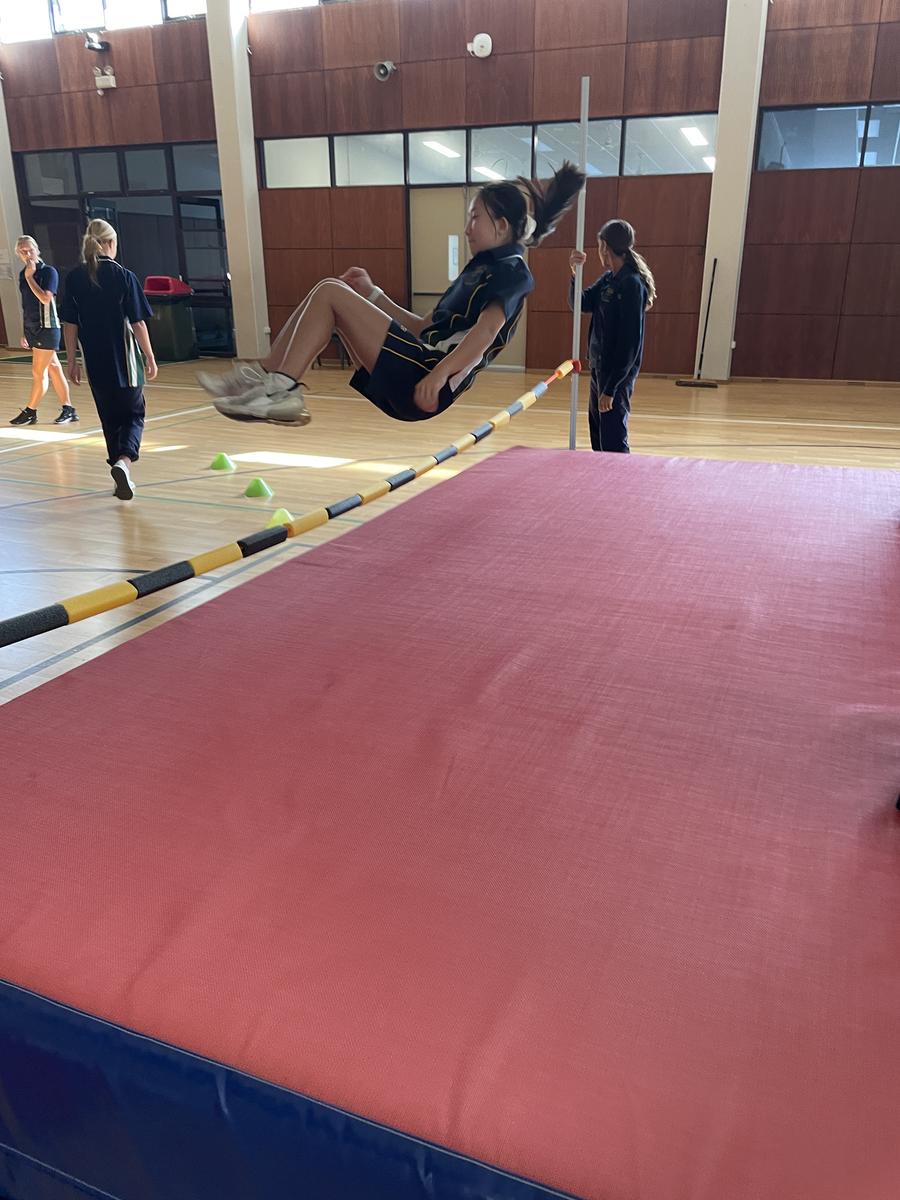
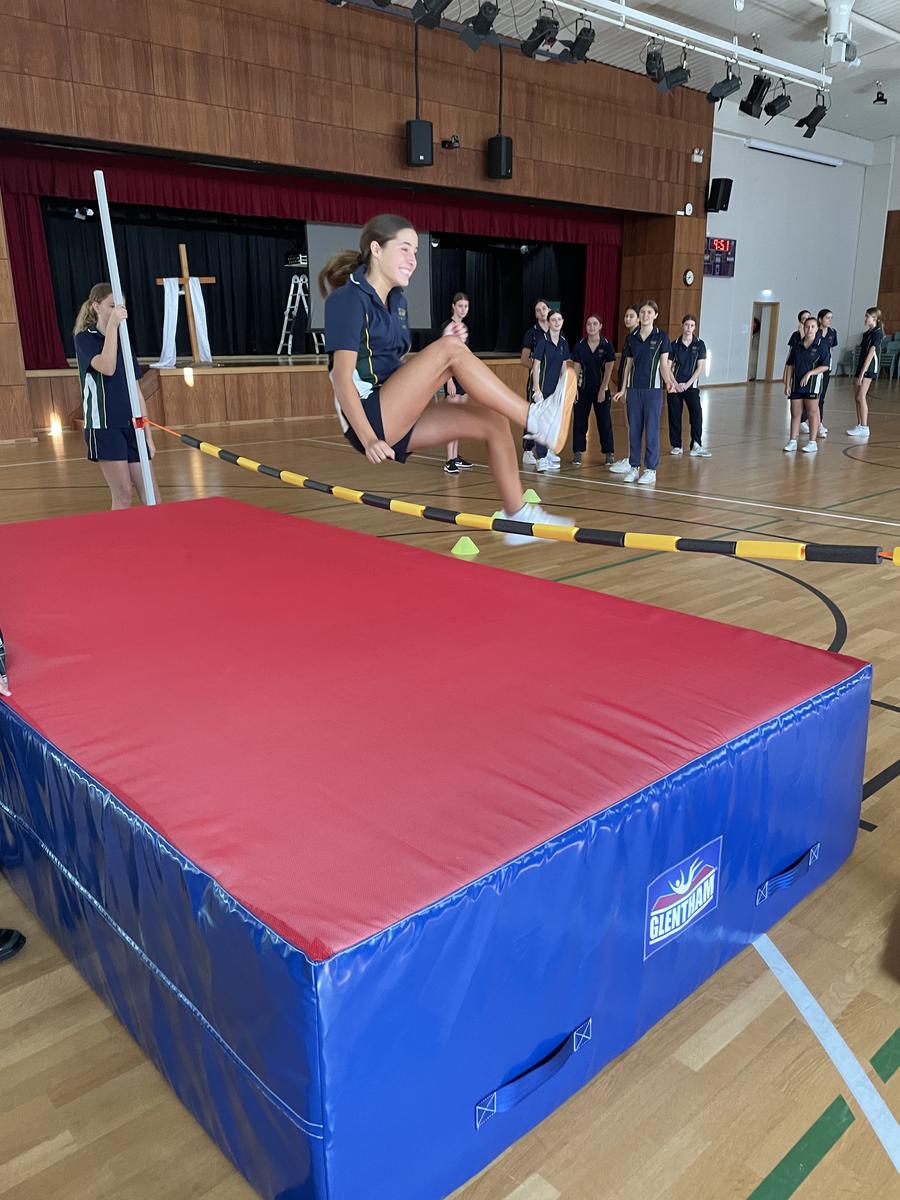
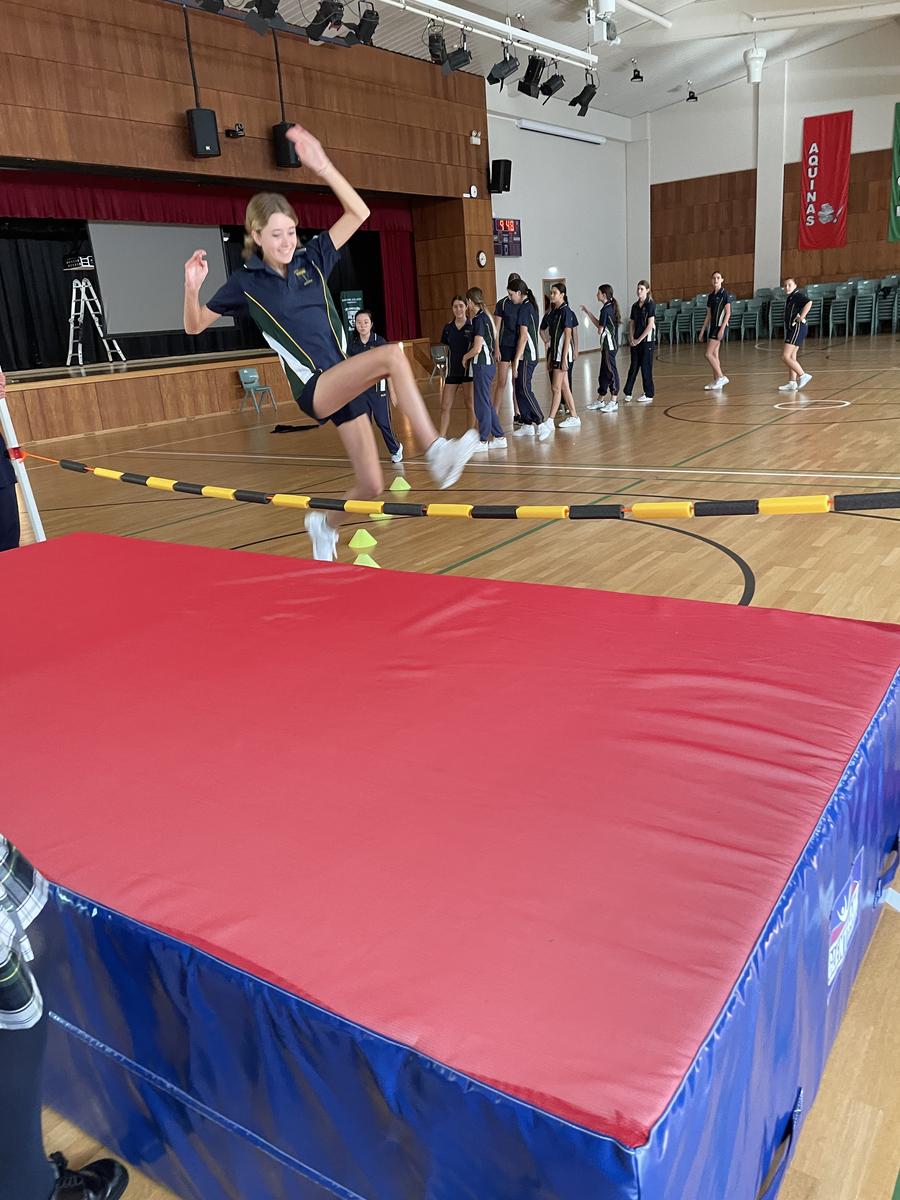
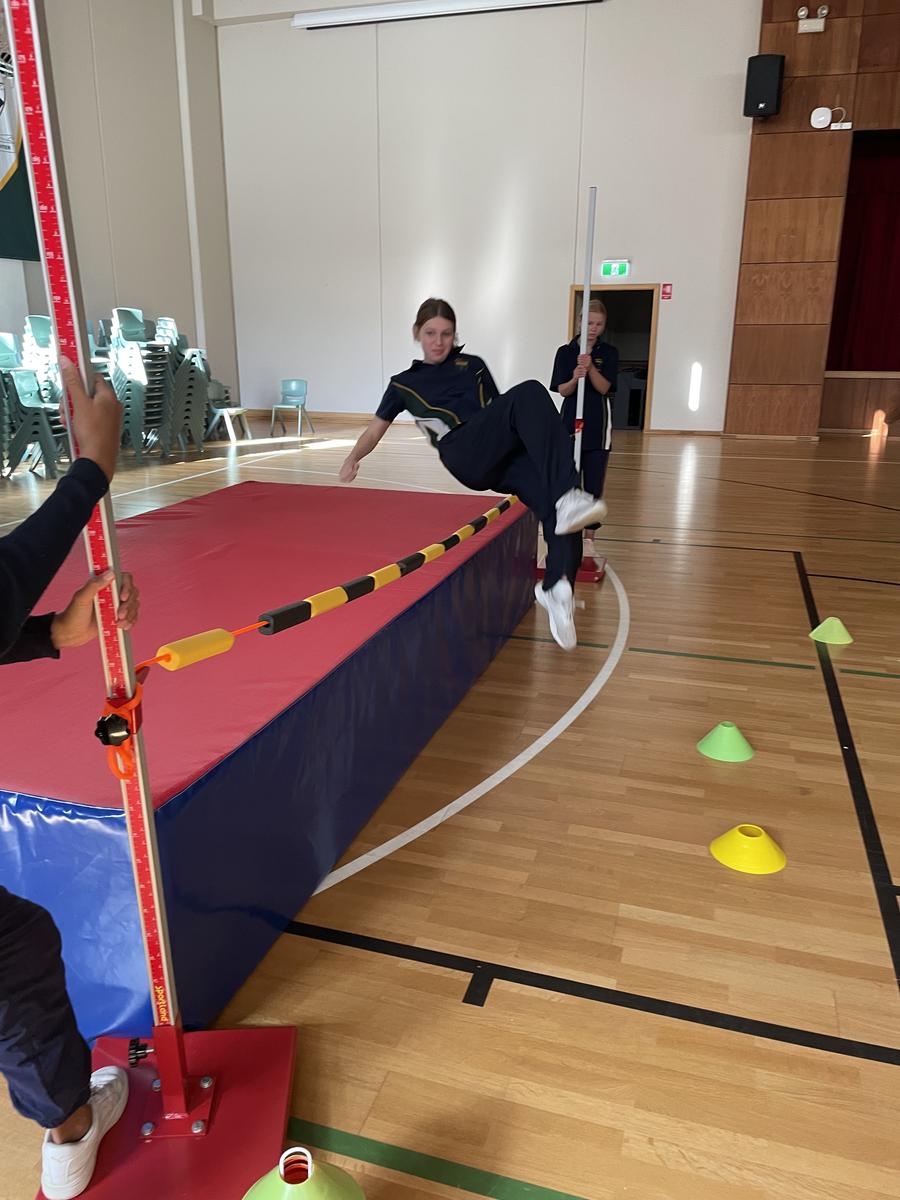





We know that participating in sport and physical activity has benefits for our health and wellbeing. With this in mind, the PDHPE Department is now full steam ahead with our Physical Education programs for Term 2. Here is what we are up to in our practical lessons for PDHPE:
Years 7-10 PDHPE
PDHPE students across Years 7-10 have now started a practical unit on Athletics, in preparation for the school athletics carnival. Students have been learning about the correct technique for high jump, which has been made even more fun with our newly purchased high jump mat and equipment. In future weeks we will work our way through the athletics throws, such as shot put, discus and javelin. It is great to see that the girls are keen to get points for their house at these events on carnival day. For the second half of Term 2, all year groups will engage in a unit on Fitness, where they will participate in various fitness activities such as the Beep Test and exercise circuits.
Years 9 and 10 PASS Elective Courses
For the first time our 10 PASS students will be challenged by the instructors from Bring it On Sports with a Flag Gridiron unit. Students will learn the rules, skills, and strategies of flag gridiron and develop their competence in executing the basic skills including: Passing, snapping, catching, running and carrying a gridiron ball, defensive coverage, tagging and shepherding. Focus will also be given to rules and making good decisions based on clear communication for the purpose of developing good team play. We are looking forward to this new and exciting practical unit.
Our 9 PASS students will be participating in the practical unit ‘Recreational Pursuits’, which corresponds with the unit of work they are currently studying in class called ‘Lifestyle Leisure and Recreation’. Here the students will be provided with opportunities to participate in lifelong recreational and leisure pursuits such as yoga, pilates, tai chi, table tennis, ultimate frisbee, croquet and finska, to challenge the perceptions they hold about the value of leisure and recreation activities as viable and rewarding forms of physical activity.
As we head towards the end of the semester, all PDHPE and PASS students will be preparing for their half yearly exams in Weeks 4 and 5 for the health and theory component of their subjects. We wish them all the best as they study and revise over the coming weeks.
Vanessa Culhane
Head of PDHPE